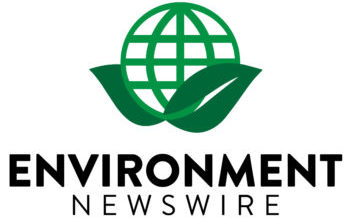WASHINGTON, March 31, 2021 /PRNewswire/ — Over two decades, a broad locally led partnership successfully cleaned up and revitalized two once blighted and struggling Spartanburg, SC, communities that had faced severe industrial contamination causing disease and death leveraged. The effort, which leveraged nearly $300 million to undertake the challenge, now stands as an international model of environmental justice success. How the rapid cleanup and redevelopment was achieved, and the lessons it offers other communities, are outlined in a 20-year retrospective, a new report released today by the ReGenesis Economic Development Corporation (ReGenesis) and MDB, Inc.

“Clean up of two Superfund sites and six Brownfield sites set the stage for extensive redevelopment of blighted neighborhoods, reduced pollution, and improved public health,” the report says. Those accomplishments “resulted in employment opportunities and improved quality of life and safety for the community.” Pollutants from industrial sources, including a municipal landfill, an abandoned fertilizer plant, an active chemical manufacturing plant, and other sites, contributed to higher-than-normal incidents of disease and death among community residents. ReGenesis worked in partnership with Federal, State, and local government agencies, the private sector, academia, and nonprofit organizations to address the environmental hazards and rebuild healthier communities. ReGenesis is a community-based, non-profit organization headquartered in Spartanburg. MDB, Inc., is a public health and environmental management consulting firm based in Washington, D.C. and Durham, North Carolina. The report was funded by the TomKat Foundation.
“This report documents the significant improvements that have been made in the Arkwright and Forest Park distressed frontline communities in Spartanburg,” said Harold Mitchell, Executive Director of ReGenesis. “It provides lessons that can guide other communities that face similar environmental justice challenges and explains the significant additional benefits that have improved community infrastructure, built safer neighborhoods, and created community empowerment through education, job training, and job creation,” said Mitchell, a former South Carolina State Representative.
In 2000, ReGenesis was selected by the Federal Interagency Working Group on Environmental Justice as one of 15 national demonstration projects. The project has since been recognized by the U.S. Environmental Protection Agency (EPA) as a Collaborative Problem-Solving Model.
“Over the past 20 years, the ReGenesis Partnership has become a national and international model of environmental justice success,” said Timothy Fields, Jr., Senior Vice President of MDB, Inc. “This report will advance the nation’s focus on environmental justice, and be a useful tool for government, industry, community stakeholders, and the public. I am very pleased with how many partners stepped up to work with ReGenesis on achieving community revitalization success,” said Fields, a former EPA Assistant Administrator who served as a facilitator for dialogues within the community. “As a result, the community has been provided with access to a better environment, proper healthcare, food security, better housing, economic and educational opportunities, and improved public health.”
The report also describes critical revitalization projects planned for the future, as well as recommendations on how the ReGenesis Partnership should proceed in the future.
Some of the major ReGenesis Partnership environmental justice achievements include the following:
- Environmental cleanup of two Superfund sites and six Brownfield sites
- Reducing crime and illegal activities
- Improved housing for the community
- Improved health care services
- Improved transportation access
- Better emergency preparedness
- Eliminating food desert
- Several job training initiatives
Highlights of funds leveraged by the ReGenesis Partnership include the following:
- Department of Housing and Urban Development (HUD) funding for new housing and redevelopment
- Department of Health and Human Services (HHS) funding for community health centers
- EPA support on contaminated site cleanup
- Department of Transportation (DOT) funding for access road construction
- South Carolina Department of Health and Environmental Control (DHEC) support in overseeing site cleanup
- Spartanburg County support on brownfields redevelopment
- City of Spartanburg support for Superfund site cleanup
- Solvay support on job creation, housing, and stakeholder engagement
ReGenesis, MDB, and other partners will conduct an extensive outreach effort to assist in the dissemination and use of this report. Outreach activities will include distributing the report to stakeholders across the United States, briefing stakeholder organizations, and transmitting information about the report via the media and other communication mechanisms.
Read the report: https://www.michaeldbaker.com/MDB_WP_live_site/wp-content/uploads/2021/03/ReGenesis-Report.pdf
The TomKat Foundation creates and partners with innovative organizations that envision a world with climate stability, a healthy and just food system, and broad prosperity.
|
CONTACT: |
Joy Lee Pearson (MDB, Inc.) |
|
202-715-3851 |
SOURCE MDB, Inc.

